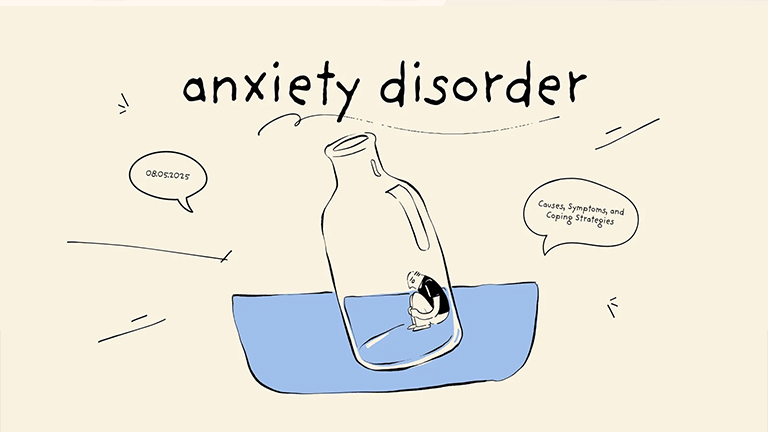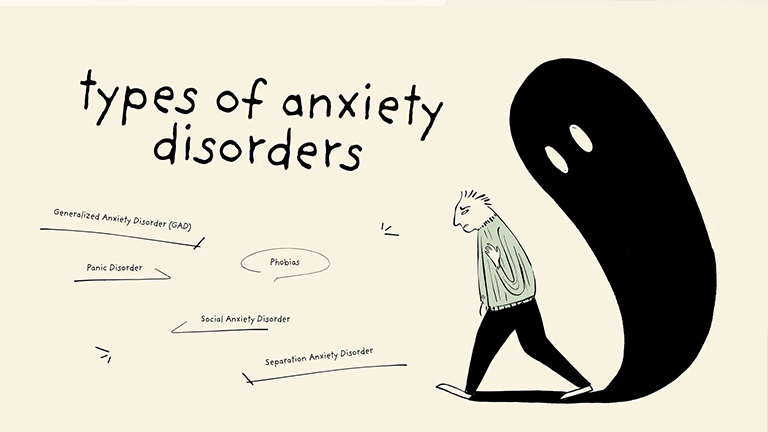Dealing with anxiety coping skills can feel like you’re trying to wrestle a ghost—sometimes it’s just everywhere, all at once. But hey, there are a bunch of tricks that actually help. Stuff like mindfulness (yeah, sitting with your thoughts instead of running from them), or giving cognitive behavioral therapy a shot if you want to rewire some unhelpful patterns in your brain. Breathing exercises? Total game-changer, especially when you’re on the verge of spiraling. Writing stuff down in a journal can help too, even if your handwriting looks like a doctor’s. And let’s not forget making some lifestyle tweaks—maybe less doomscrolling, more sleep, whatever works. Point is, these aren’t just fluffy self-help tips; they actually work if you stick with them. Big bonus: you start to feel more chill, life gets a bit more balanced, and, who knows, you might even enjoy your own company a little more. So, yeah, worth trying out, right?
Table of Contents
Introduction to Anxiety Coping Skills
Anxiety’s just part of being human, right? It’s like your brain’s annoying little alarm system—sometimes helpful, sometimes just there to ruin your day. But when that anxious feeling decides to stick around for the long haul, suddenly everything feels ten times harder. Getting through the day? Forget it. That’s why nailing down some solid coping skills isn’t just a “nice-to-have”—it’s survival mode. So, let’s dig into a bunch of ways real people deal with anxiety, from science-y stuff to tricks therapists swear by, and honestly, a few hacks you can pull off when you’re just trying to get through the next hour.
Understanding Anxiety and Its Impact
Man, anxiety is everywhere these days. It’s like that annoying friend who just shows up uninvited and won’t take the hint. There’s no one-size-fits-all, either—you’ve got the classic “worry about literally everything” vibe (yep, that’s generalized anxiety), the random panic attacks that hit outta nowhere, and the whole “oh no, people are looking at me” social anxiety mess.
We’re not just talking about feeling a little nervous, either. It can mess you up—constant worrying, feeling on edge, can’t focus, tired but can’t sleep, heart pounding like you just ran a marathon (even though you barely left the couch). It’s not just in your head, it can straight-up wreck your body and make relationships a total disaster. Honestly, life just gets harder across the board.
If you wanna handle it, first you’ve gotta recognize what’s going on. That’s half the battle—just figuring out you’re not “crazy,” you’re dealing with anxiety. The rest? Well, that’s a journey, but at least you know what you’re fighting.
Effective Coping Strategies
Mindfulness and Meditation
Alright, so mindfulness. It’s basically paying attention to what’s happening right now, without beating yourself up about it. No judgment, just… noticing. You can get there with stuff like meditation, breathing exercises, or even just zoning out to some chill guided imagery. Honestly, it’s wild how much this helps people just deal with all the noise in their heads.
And get this—research actually backs it up. MBSR (that’s Mindfulness-Based Stress Reduction, if you wanna get fancy) isn’t just some trendy self-help thing; it’s been shown to really cut down on anxiety. Like, it actually works. Pretty cool, right?
For more research, visit American Psychological Association – Mindfulness.
Cognitive Behavioral Therapy (CBT)
Alright, let’s get real for a sec—CBT (Cognitive Behavioral Therapy) isn’t just some fancy acronym therapists throw around. It’s basically a mental bootcamp. You catch those crummy, self-sabotaging thoughts, flip ‘em around, and start looking at stuff with a less doom-and-gloom vibe. They’ve got these wild tools—thought records (yeah, you literally write down your mental nonsense), cognitive restructuring (that’s just a fancy way of saying “think different”), and even exposure stuff, where you kinda face your fears head-on. National Institute of Mental Health says it works wonders for anxiety and panic, and honestly, I believe them.
Breathing Exercises and Relaxation Techniques
Now, about breathing exercises and chill-out tricks—deep breathing isn’t just for yoga moms. When you slow your breath or try progressive muscle relaxation (that thing where you tense up then relax different body parts), your body basically goes, “Ah, finally,” and stops freaking out so much. Guided imagery can help too, especially if you’re into mental vacations. Do this stuff on the regular and your anxiety will probably stop running the show.
Physical Activity and Exercise
Exercise, though. It’s not just about getting a six-pack (I wish). Moving your body releases endorphins, those little “feel good” chemicals. Doesn’t really matter if you’re jogging, busting out yoga poses, or just power-walking around the block—any movement helps take the edge off anxiety. Science backs this up, so it’s not just gym bros hyping it up.
Journaling and Self-Reflection
And hey, journaling isn’t just for moody teens or wannabe novelists. Dumping your thoughts onto paper actually helps untangle your brain. Write every day, track what sets you off, and you might spot patterns you never noticed before. Plus, it’s kind of satisfying to see your progress when you look back.
Lifestyle Modifications to Support Mental Health
Sleep Hygiene
Let’s be real—if your sleep is all over the place, your anxiety is probably doing backflips too. It’s wild how just one night of bad sleep can mess with your head. Aim for that golden 7-9 hours, and don’t just scroll TikTok until 2am. Make your room a chill zone, not a rave.
Nutrition and Diet
You know that saying, “You are what you eat”? Well, turns out, your brain actually cares. Loading up on veggies, fruits, some grilled chicken or tofu, and whole grains? That’s your brain’s love language. Chugging coffee, pounding energy drinks, or snacking on a pile of donuts? Yeah, not so much. Dial down the caffeine and sugar if you don’t want your anxiety doing the cha-cha.
Social Connections and Support
Nobody’s meant to do life solo, especially if anxiety’s the uninvited guest. Having people who get it—friends, family, even that random group chat—can pull you out of your own head. Support groups and therapy aren’t just for TV dramas. Sometimes venting to someone who won’t judge is the best medicine.
Seeking Professional Help Anxiety Coping Skills
Look, if you’ve tried all the self-care hacks and your anxiety’s still running the show, don’t tough it out alone. Call in the pros—a therapist, psychologist, whatever fits. Sometimes you need someone who knows their stuff, whether that’s talking it out, meds, or a mix. No shame in getting backup.
Expert Opinions on Anxiety Management
Dr. Jane Smith, a licensed psychologist, emphasizes, “Practicing daily anxiety coping strategies like mindfulness meditation and CBT can reduce symptoms by up to 40% over eight weeks.”
According to the World Health Organization, early intervention with coping strategies improves outcomes for anxiety disorders worldwide.
Conclusion Anxiety Coping Skills
Honestly, dealing with anxiety is just part of being human these days, right? You gotta have some tricks up your sleeve—meditation, maybe some CBT stuff, deep breathing, or just going for a walk when your brain won’t shut up. Mix that with some tweaks to your daily routine, and suddenly things don’t feel so out of control. It’s not magic, but hey, it helps you keep your head above water.
Frequently Asked Questions (FAQs)
© 2025 Prescription Chamber. All rights reserved.


